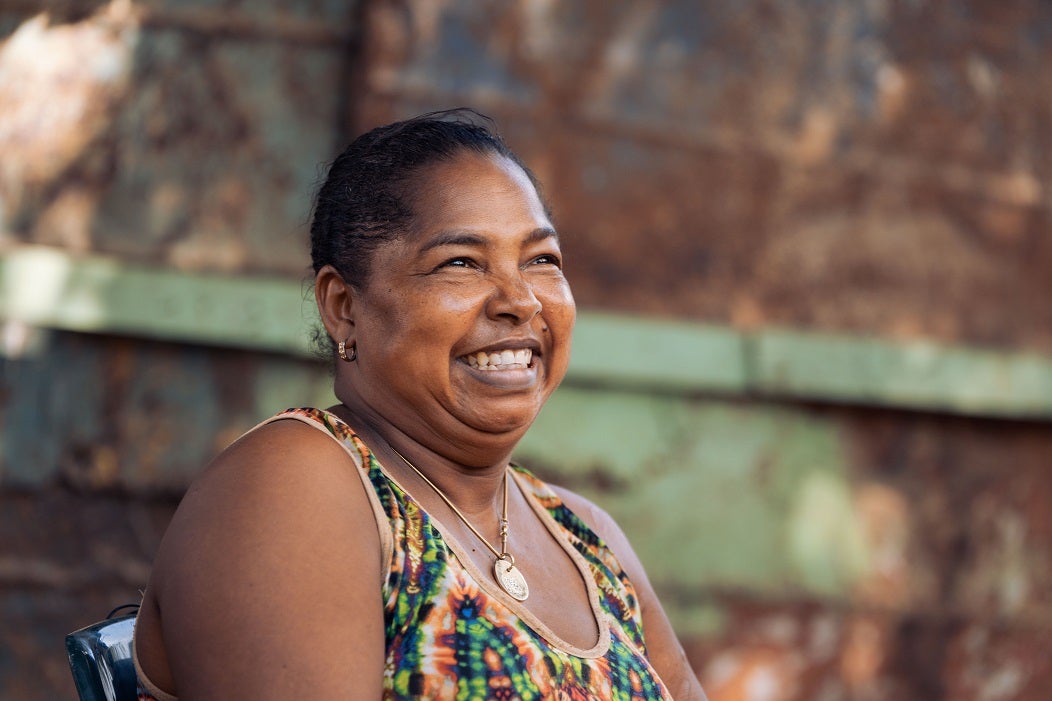December 2023 will mark the 8th anniversary of the adoption of the Paris Agreement (PA). Since then, progress has been made toward the treaty’s goals. In Latin America and the Caribbean (LAC), sustainability-linked bonds reported under the Green Bond Transparency Platform over the past two years have achieved the avoidance/reduction of over 36.5M tCO2, – a figure roughly equivalent to 2019 passenger emissions from intra-regional commercial aviation in LAC! Also encouraging is the growing societal support for the implementation of Nature-Based Solutions (NBS); for example, an IDB project in Colombia where storm surge is being managed through the conservation and restoration of mangrove ecosystems, which also improves spawning grounds for fisheries and sequesters carbon. Overhauls to the financial system are being discussed, such as Barbados’s Bridgetown Initiative and its push for the rethinking of climate finance. Public support for Nationally Determined Contributions (NDCs) grows: over twenty-nine countries in LAC have updated them, most of them increasing their ambition when compared to their initial submissions to the UNFCCC.
The UNFCCC’s NDC Synthesis Report allows us to conclude that, while current pledges and investments in support of climate action are a step forward, they are insufficient to meet the goals of the PA. For this, the world must also re-direct financial flows towards the low-carbon and climate-resilient pathways that keep the Earth’s temperature and communities’ adaptation capacities within safe parameters for development. For this reason, Multilateral Development Banks (MDBs) have been collaborating on a framework that adds to a global conversation regarding the role financial institutions must play in facilitating this transition. In a previous blog, we described how the IDB Group, along with partner MDBs, have adopted a common approach towards aligning their operations, climate finance ambition, policy dialogue, reporting frameworks, and corporate activities to the goals of the PA.
When they began this Paris-alignment journey in 2017, MDBs had limited frameworks to inform such efforts. While the Intergovernmental Panel on Climate Change (IPCC) 1.5°C Special Report had already been published, the IEA Net Zero by 2050 Report would not emerge until 2021. Net zero pledges were non-existent until 2019, the same year Costa Rica’s emblematic Long-Term Strategy (LTS) was first presented before the UNFCCC. The Science-based Targets Initiative would still take 4 years to publish its first sector guidance for decarbonizing power and cement, with others still underway. We were also still far from the IPCC’s emblematic AR6 Synthesis Report, which gives a wealth of evidence to design effective resilience strategies.
MDBs accepted the fact that they would need to learn by doing: jump into action, despite imperfect information and lack of clarity on countries’ and industries’ approaches to the transition. As a result, in 2019 MDBs published and began piloting a draft version of a common framework to assess their development finance against the mitigation and adaptation goals of the PA.
Fortunately, today in 2023, we are in a very different place. Since then, frameworks and evidence-based targets in support of financial PA-alignment efforts have multiplied, and now we have a large and growing suite of tools and commitments by stakeholders to ensure we are bringing the climate ambition of the PA into our financial decision-making and dialogue with clients. Some developments worth mentioning are:
- The presentation of Long-term Strategies (LTSs) under the UNFCCC, which in LAC include: Argentina, Belize, Chile, Colombia, Costa Rica, Guatemala, Mexico, and Uruguay, also bearing in mind that so far, 16 countries in the region have made net zero/carbon neutrality pledges.
- The work by the Network for Greening the Financial System (NGFS) will present updated scenarios this year 2023.
- Initiatives from the private sector, such as the Coalition for Climate Resilient Investment (CCRI), the Glasgow Financial Alliance for Net Zero (GFANZ), and net zero pledges made by over 8,307 companies across the world under the Race to Zero campaign.
Progress in the intellectual and practice arena of redirecting financial flows is helping MDBs advance their understanding, and perhaps most importantly, it is opening critical conversations we need to build consensus around if the world is to achieve the goals of the PA. Growing evidence and practical tools force us to continuously raise our ambition and assess whether in our role as an MDBs, we are doing everything we can to ensure the climate transition is swift, fair, and that it improves real lives.
Power, Change, and Possibility: A New Methodology for Paris Alignment
June 2023 marks an important milestone for MDBs in their journey: the issuance of the first official version of their Joint MDB Methodological Principles for Assessment of Paris Agreement Alignment. In preparation for this, IDB, IDB Invest, and IDB Lab have been diligently working for the past 18 months on the IDB Group Paris Alignment Implementation Approach (PAIA), which constitutes the adaptation of the Joint MDB principles to our individual mandates and policies. This PAIA includes five working documents of technical guidance for the following sectors: i. energy, ii. transport, iii. water and sanitation, iv. agri-food systems, and v. operations with financial intermediaries. These are meant to guide technical teams toward aligning their projects to both the mitigation and adaptation goals of the PA.
The MDB methodology, the PAIA, and our sector technical guidance have all been designed under the learning-by-doing principle, as they: 1) are based on the best information available at this time; 2) incorporate some early practitioners’ insights of how to operationalize transition pathways; and 3) remain open for feedback based on practical implementation and evolving knowledge from diverse stakeholders.
The clearest takeaway from these past years is that to innovate and effectively shift financial flows, it takes a village. We started with a clear ambition and vision, but implementation required us to elaborate tools and standards, principles, and methodologies. We are counting on all the different initiatives across academia, civil society, the private sector, and international organizations, to continue pushing forward the path towards low carbon and climate-resilient development.


Leave a Reply